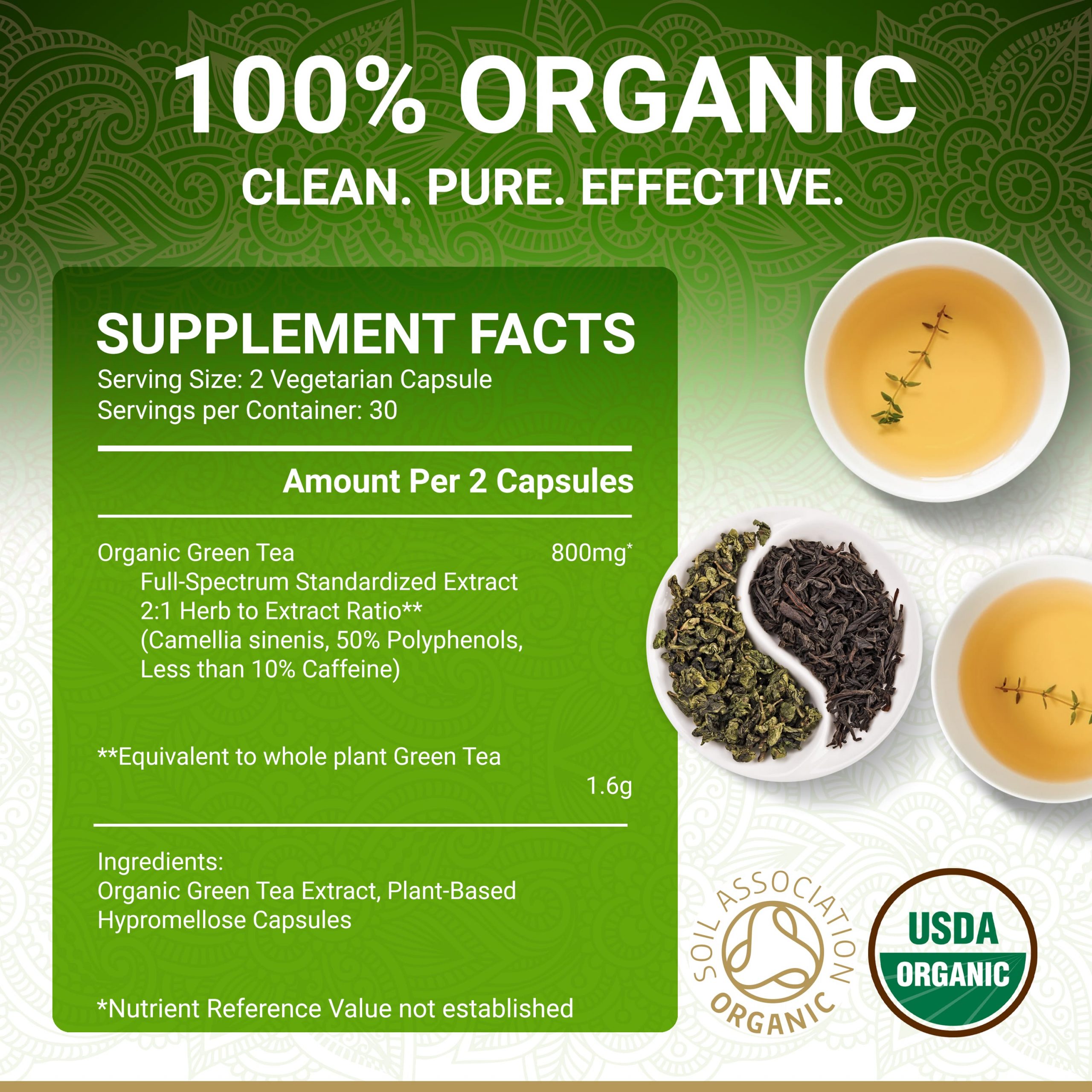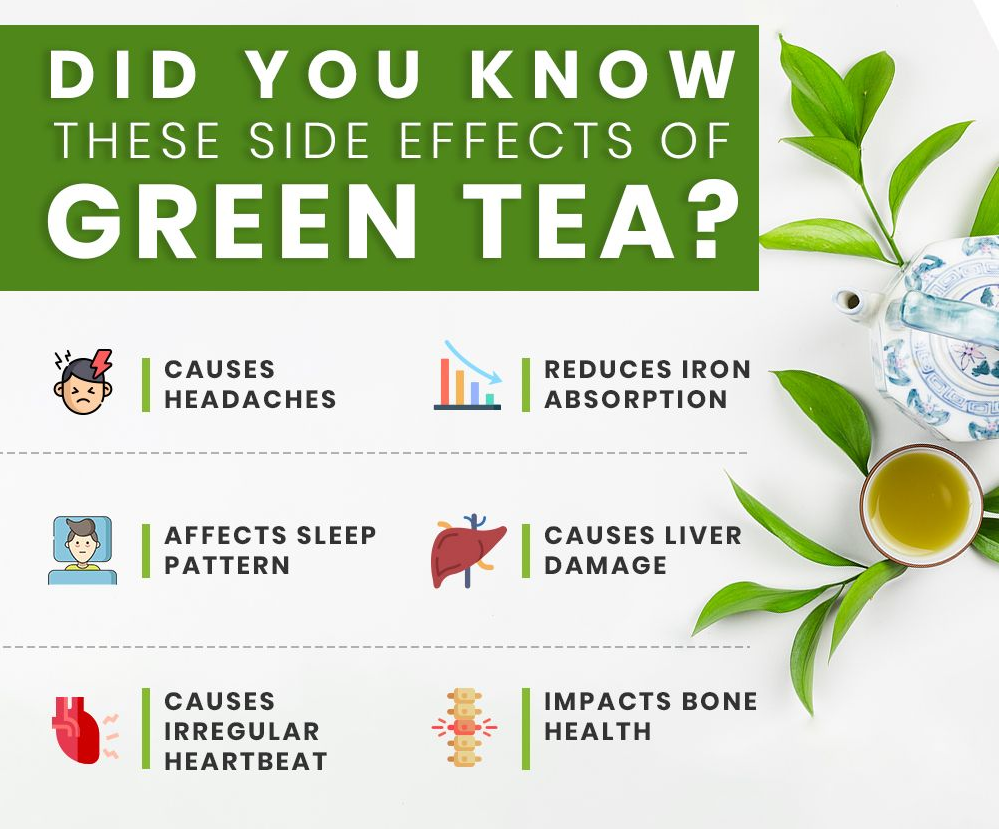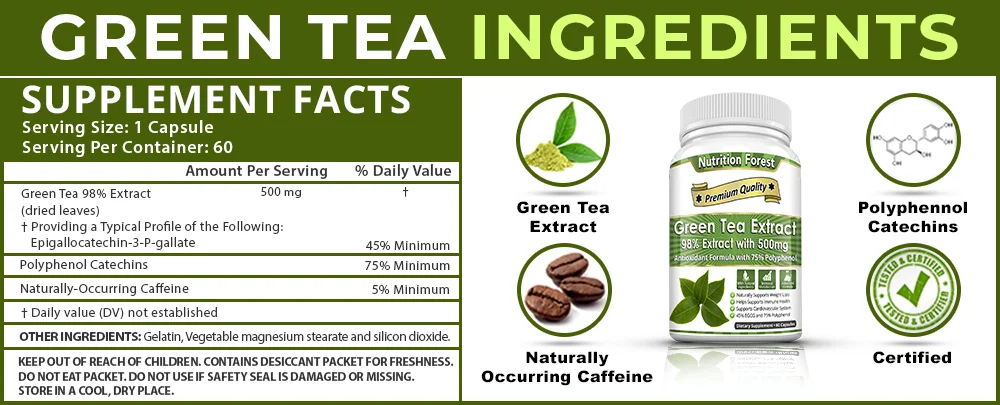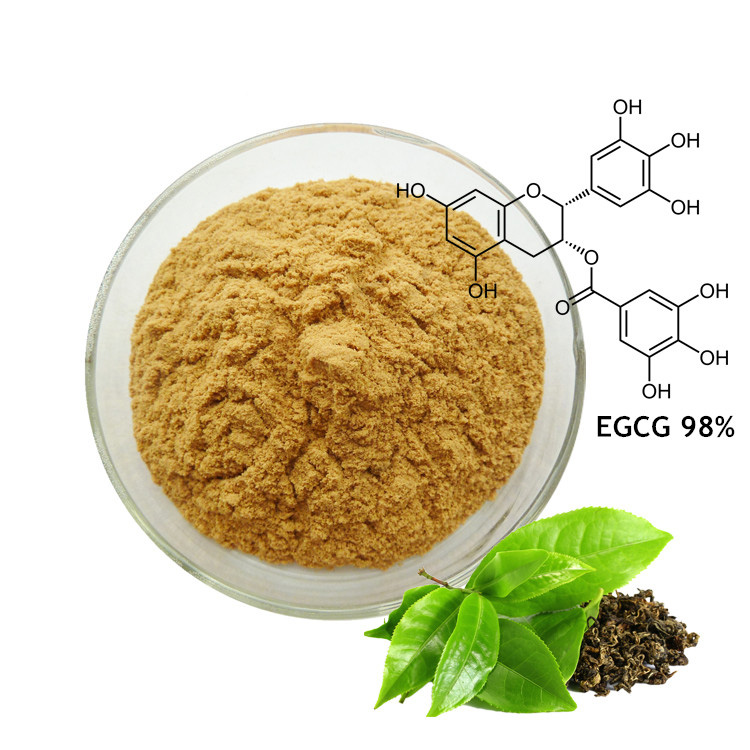Content Menu
● Understanding Green Tea Extract
>> Forms of Green Tea Extract
● Recommended Dosage
>> General Recommendations
>> Factors Influencing Dosage
● Benefits of Green Tea Extract
>> 1. Weight Loss and Fat Burning
>> 2. Antioxidant Properties
>> 3. Improved Brain Function
>> 4. Heart Health
>> 5. Cancer Prevention
>> 6. Enhanced Physical Performance
>> 7. Blood Sugar Regulation
>> 8. Skin Health
● Potential Side Effects
● Tips for Taking Green Tea Extract
● Conclusion
● Questions and Answers
Green tea extract has gained immense popularity in recent years due to its numerous health benefits, including weight loss, improved brain function, and enhanced heart health. As more people turn to this supplement, a common question arises: How much green tea extract should I take daily? This article will explore the recommended dosages, potential benefits, side effects, and considerations for incorporating green tea extract into your daily routine.

Understanding Green Tea Extract
Green tea extract is derived from the leaves of the Camellia sinensis plant, which is the same plant used to produce green tea. The extract is rich in antioxidants, particularly catechins, which are believed to be responsible for many of its health benefits. The most notable catechin in green tea extract is epigallocatechin gallate (EGCG), known for its powerful antioxidant properties.
Forms of Green Tea Extract
Green tea extract is available in various forms, including:
◆ Capsules: These are the most common form and provide a concentrated dose of the extract.
◆ Powder: Green tea powder can be added to smoothies, baked goods, or beverages.
◆ Liquid Extracts: These can be taken directly or mixed with water or juice.
Recommended Dosage
Determining the right dosage of green tea extract can depend on several factors, including individual health goals, the specific product used, and personal tolerance. Here are some general guidelines:
General Recommendations
1. Standard Dosage: A common recommendation is to take between 250 mg to 500 mg of green tea extract daily. This dosage typically provides a sufficient amount of EGCG to reap health benefits without causing adverse effects.
2. For Weight Loss: Studies suggest that a daily intake of around 379 mg of EGCG can be effective for weight management. This dosage may help enhance fat oxidation and improve metabolic rates.
3. For Antioxidant Benefits: To maximize antioxidant intake, a dosage of 300 mg to 600 mg of green tea extract is often recommended.
Factors Influencing Dosage
1. Individual Health Goals: Your specific health objectives, such as weight loss, improved cognitive function, or enhanced athletic performance, can influence the dosage you choose.
2. Body Weight: Some experts suggest that dosage may be adjusted based on body weight, with larger individuals potentially requiring higher amounts to achieve the same effects.
3. Caffeine Sensitivity: Green tea extract contains caffeine, which can affect individuals differently. If you are sensitive to caffeine, you may want to start with a lower dosage and gradually increase it as tolerated.

Benefits of Green Tea Extract
Green tea extract is associated with a wide range of health benefits, making it a popular supplement among health enthusiasts. Here are some of the most notable benefits:
1. Weight Loss and Fat Burning
One of the most well-known benefits of green tea extract is its potential to aid in weight loss. Research suggests that the catechins in green tea can enhance fat oxidation and improve metabolic rates, making it easier to shed excess pounds. Additionally, green tea extract may help reduce appetite, leading to lower calorie intake.
2. Antioxidant Properties
Green tea extract is rich in antioxidants, which help combat oxidative stress and reduce inflammation in the body. This can lower the risk of chronic diseases, including heart disease and cancer. The high concentration of EGCG in green tea extract is particularly effective at neutralizing free radicals.
3. Improved Brain Function
The caffeine and L-theanine found in green tea extract can enhance brain function, improving mood, focus, and cognitive performance. Studies have shown that these compounds can increase alertness and attention, making green tea extract a popular choice for those looking to boost their mental clarity.

4. Heart Health
Regular consumption of green tea extract may support heart health by improving cholesterol levels and reducing blood pressure. The antioxidants in green tea can help lower LDL cholesterol (the "bad" cholesterol) while increasing HDL cholesterol (the "good" cholesterol), contributing to overall cardiovascular health.
5. Cancer Prevention
Some studies suggest that the antioxidants in green tea extract may help protect against certain types of cancer. The anti-inflammatory properties of EGCG can inhibit the growth of cancer cells and reduce the risk of tumor formation.
6. Enhanced Physical Performance
Green tea extract may also improve physical performance by increasing fat oxidation during exercise. This can lead to improved endurance and stamina, making it a popular supplement among athletes and fitness enthusiasts. The caffeine content in green tea extract can also enhance exercise performance by increasing energy levels and reducing perceived exertion.
7. Blood Sugar Regulation
Research indicates that green tea extract may help regulate blood sugar levels, making it beneficial for individuals with insulin resistance or type 2 diabetes. The catechins in green tea can improve insulin sensitivity and reduce blood sugar spikes after meals.
8. Skin Health
The antioxidant properties of green tea extract can also benefit skin health. Topical application of green tea extract may help reduce signs of aging, protect against UV damage, and improve skin hydration. Additionally, oral supplementation may contribute to overall skin health by reducing inflammation and promoting a clearer complexion.
Potential Side Effects
While green tea extract is generally considered safe for most people, it can cause side effects, especially when taken in high doses. Some potential side effects include:
◆ Caffeine Sensitivity: Individuals sensitive to caffeine may experience symptoms such as insomnia, jitteriness, or increased heart rate.
◆ Gastrointestinal Issues: Some people may experience stomach upset, nausea, or diarrhea when taking green tea extract, particularly on an empty stomach.
◆ Liver Toxicity: In rare cases, excessive consumption of green tea extract has been linked to liver damage. It is essential to adhere to recommended dosages to minimize this risk.

Tips for Taking Green Tea Extract
To maximize the benefits of green tea extract while minimizing potential side effects, consider the following tips:
1. Start Slow: If you are new to green tea extract, begin with a lower dosage and gradually increase it as your body adjusts.
2. Take with Food: Consuming green tea extract with food can help reduce the risk of gastrointestinal discomfort.
3. Stay Hydrated: Ensure you drink plenty of water throughout the day, especially if you are consuming multiple sources of caffeine.
4. Consult a Healthcare Professional: Before starting any new supplement, it is advisable to consult with a healthcare provider, particularly if you have underlying health conditions or are taking medications.
Conclusion
In summary, the recommended daily dosage of green tea extract typically ranges from 250 mg to 500 mg, depending on individual health goals and tolerance. This powerful supplement offers numerous health benefits, including weight loss support, antioxidant protection, improved brain function, and enhanced heart health. However, it is essential to be mindful of potential side effects and to consult with a healthcare professional before incorporating green tea extract into your daily routine.

Questions and Answers
Q: Can I take green tea extract on an empty stomach?
A: While some people can tolerate it, taking green tea extract on an empty stomach may cause gastrointestinal discomfort. It is often recommended to take it with food.
Q: How long does it take to see results from green tea extract?
A: Results can vary, but many people may start to notice benefits within a few weeks of consistent use, especially for weight loss and energy levels.
Q: Is green tea extract safe for everyone?
A: While generally safe, individuals with certain health conditions or those sensitive to caffeine should consult a healthcare provider before taking green tea extract.
Q: Can I drink green tea instead of taking the extract?
A: Yes, drinking green tea can provide similar benefits, but the concentration of catechins is lower than in extract form. You may need to consume several cups of green tea to match the benefits of a supplement.
Q: What is the best time to take green tea extract?
A: Many people find it beneficial to take green tea extract in the morning or early afternoon to avoid potential sleep disturbances from caffeine.
































